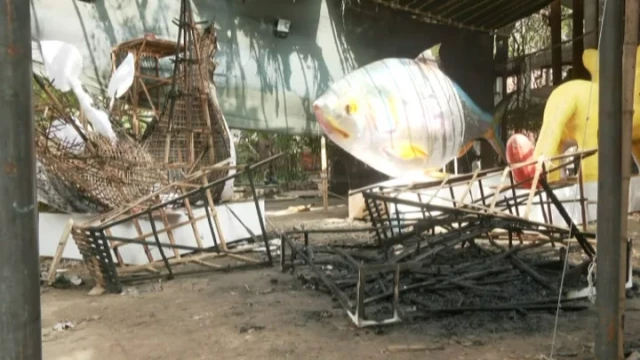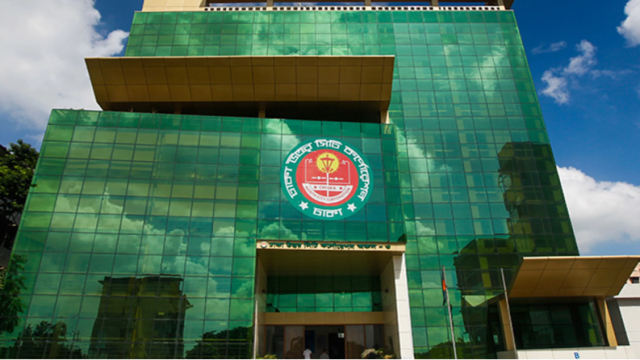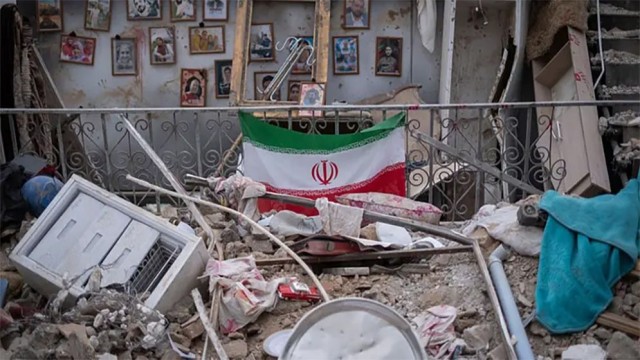Dhaka, Apr 12 (V7N) – Tensions flared early Saturday morning as miscreants set fire to a towering "fascist portrait"—a central motif of this year's Pohela Baishakh celebration procession—created by students of the Faculty of Fine Arts at Dhaka University (DU).
The symbolic structure, crafted from bamboo and rattan and standing approximately 20 feet tall, was intended to be a striking centerpiece for the university's New Year procession. Featuring a stylized face with horns, the portrait was widely interpreted as a bold critique of former Prime Minister Sheikh Hasina, embodying themes of authoritarianism and political oppression.
Authorities believe the fire broke out between 4:45 AM and 5:00 AM. According to DU Proctor Associate Professor Saifuddin Ahmed, the incident likely occurred while members of the university's mobile security team were away performing Fajr prayers, creating a vulnerable window of opportunity for the perpetrators.
The destroyed portrait had already been completed and was poised to lead the 'Barshavaran Ananda Shobhajatra', a newly renamed procession replacing the longstanding title 'Mangal Shobhajatra'—a cultural hallmark of Pohela Baishakh in Bangladesh. The rebranding, announced just a day earlier on April 11, has drawn attention and debate, particularly surrounding the term 'Mangal', which the university stated "creates bad feelings in society."
Explaining the name change, DU Vice-Chancellor stated, “We are not changing the name, we are going back to the old name.” However, critics argue the move reflects a retreat from secular traditions and a response to regressive authoritarian pressures.
The arson incident is being investigated, and while no suspects have been identified, university officials have condemned the act, calling it a targeted attack on freedom of expression and artistic dissent.
Students and organizers expressed deep shock over the destruction of the portrait, calling it a deliberate attempt to silence protest narratives embedded in the visual motifs of the celebration. “This was more than just art—it was a message,” said one Fine Arts student. “And now that message has been attacked.”
Despite the setback, the Faculty of Fine Arts is reportedly preparing alternative motifs to ensure the procession goes ahead as planned.
Pohela Baishakh, celebrated on April 14, marks the Bengali New Year and is one of the most significant cultural events in Bangladesh, known for its vibrant processions, colorful masks, and expressions of unity and hope.
END/MSS/AJ































Comment: